China’s a big place, and it can be hard to know where to start your trip. Should you head to Sichuan to see the mountains and the panda bears? How about Xinjiang to follow the Silk Road?
Well… why not work your way around China’s World Heritage-listed sites? China has more heritage-listed attractions than anywhere else in the world, and they are so jaw-dropping you might forget to take a photo.
1. The Great Wall of China
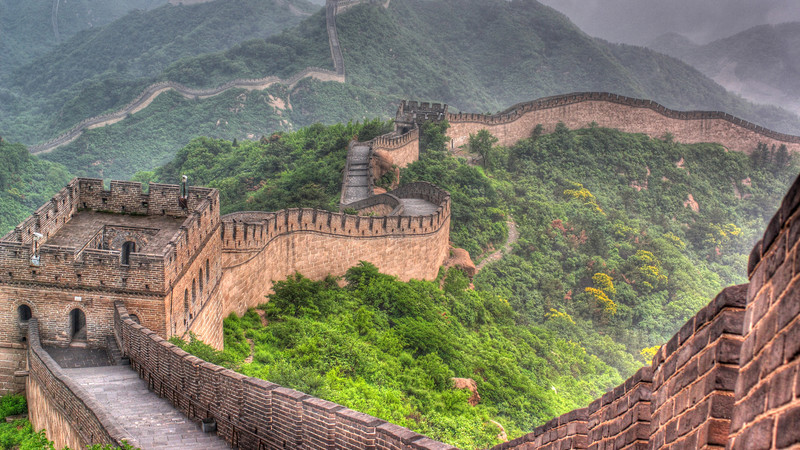 The name tells you everything you need to know – the Great Wall of China really is a great wall, a massive expanse of brick and stone, with gatehouses and passes, extending for 21,000 kilometres across China (good news for us – there’s plenty of wall to visit). Construction on the wall started around a thousand years ago, with the aim of protecting China’s borders against enemies like the Huns. Even though it’s not needed for defensive purposes anymore, much of the wall is still standing. It’s only when you’re standing on the wall, looking at it extend as far as you can see in both directions, that you can get any sense of its truly mighty scale.
The name tells you everything you need to know – the Great Wall of China really is a great wall, a massive expanse of brick and stone, with gatehouses and passes, extending for 21,000 kilometres across China (good news for us – there’s plenty of wall to visit). Construction on the wall started around a thousand years ago, with the aim of protecting China’s borders against enemies like the Huns. Even though it’s not needed for defensive purposes anymore, much of the wall is still standing. It’s only when you’re standing on the wall, looking at it extend as far as you can see in both directions, that you can get any sense of its truly mighty scale.
2. Fujian Tulou
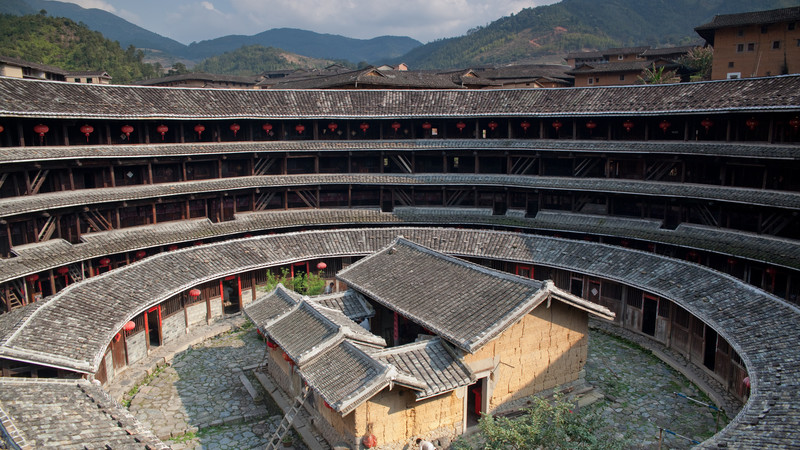 The tulou did communal housing before it was a buzzword for architectural types and politicians. Built in Fujian province for over 500 years, these multi-storey buildings have both a defensive and social purpose. Constructed in a circle, with tall mud walls presenting an easily defendable face to the world, the tulou function as mini villages, sometimes housing up to hundreds of people. The living quarters are all in the circle, with a village ‘square’ in the centre. These buildings have a look of an amphitheatre or bull-fighting ring – big, impressive, notable – and very surprising amidst the rural farmland.
The tulou did communal housing before it was a buzzword for architectural types and politicians. Built in Fujian province for over 500 years, these multi-storey buildings have both a defensive and social purpose. Constructed in a circle, with tall mud walls presenting an easily defendable face to the world, the tulou function as mini villages, sometimes housing up to hundreds of people. The living quarters are all in the circle, with a village ‘square’ in the centre. These buildings have a look of an amphitheatre or bull-fighting ring – big, impressive, notable – and very surprising amidst the rural farmland.
3. Forbidden City
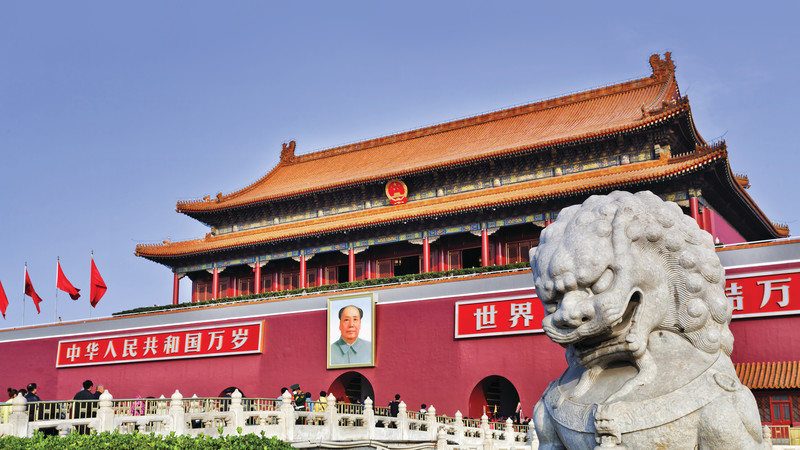 Imperial China did things on a big scale – you could live your entire life in the Forbidden City, and not see it all, as the palace complex has almost a thousand buildings. It was built in the 15th century, when the capital of China moved from Nanjing to Beijing. Constructed on a rectangular site in the political and ceremonial heart of Beijing (Tiananmen Square is just outside one of the gates), the Forbidden City is an overwhelming display of ornamented and mighty wooden buildings crafted and landscaped with the highest skill. It was meant to represent the power of the emperor and the empire – and by the emperor’s robes does it deliver.
Imperial China did things on a big scale – you could live your entire life in the Forbidden City, and not see it all, as the palace complex has almost a thousand buildings. It was built in the 15th century, when the capital of China moved from Nanjing to Beijing. Constructed on a rectangular site in the political and ceremonial heart of Beijing (Tiananmen Square is just outside one of the gates), the Forbidden City is an overwhelming display of ornamented and mighty wooden buildings crafted and landscaped with the highest skill. It was meant to represent the power of the emperor and the empire – and by the emperor’s robes does it deliver.
4. Hongcun Village
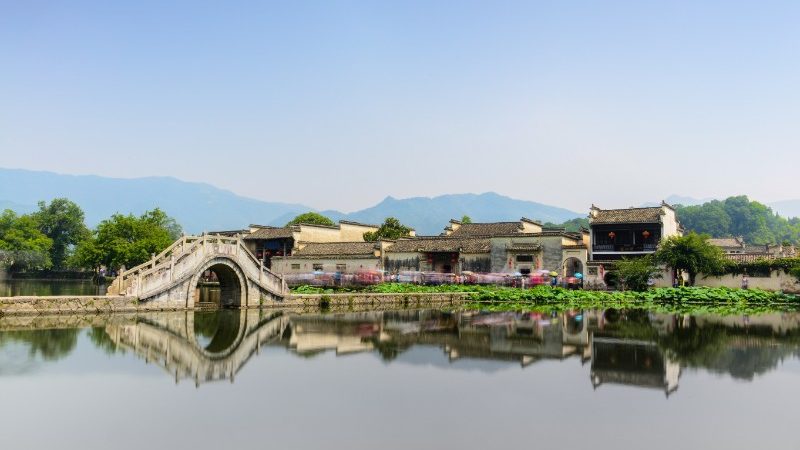 We don’t know why Hongcun Village in Anhui Province isn’t big on Instagram – this graceful and well-preserved Anhui village is ridiculously picturesque. The village is constructed around two pools, with canals that run throughout town. The pools are lined by two-storey buildings, painted in white with dark detailing and tiles. It’s so peaceful you might feel time stop. Traditional villages are disappearing quickly in China, which makes this village all the more notable.
We don’t know why Hongcun Village in Anhui Province isn’t big on Instagram – this graceful and well-preserved Anhui village is ridiculously picturesque. The village is constructed around two pools, with canals that run throughout town. The pools are lined by two-storey buildings, painted in white with dark detailing and tiles. It’s so peaceful you might feel time stop. Traditional villages are disappearing quickly in China, which makes this village all the more notable.
5. The Old Town of Lijiang
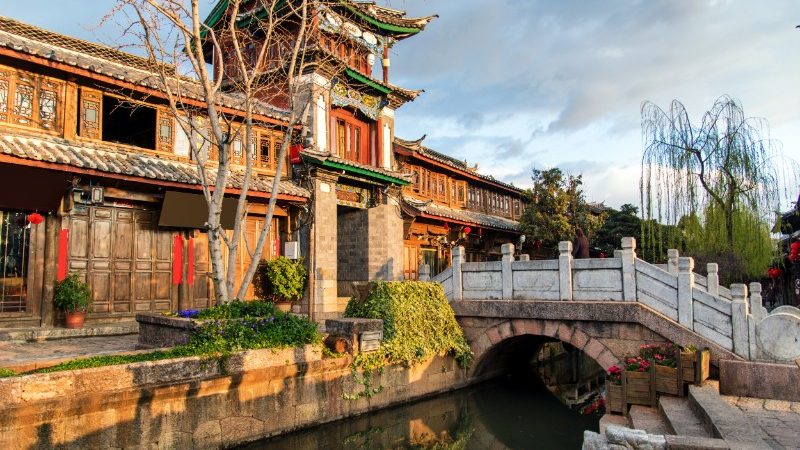 The Old Town of Lijiang in Yunnan might just seem like a pretty historic town built over hills and rivers on first glance – but take the time to explore and you’ll find a town in remarkable harmony with its surroundings. From above, the town looks like a bunch of grey shields facing the sky, but down on the streets you’ll find a town of colour, with architectural styles that draw from a range of influences. There are canals flowing throughout the town, a still-working aqueduct system providing water to buildings throughout the town. We hesitate to make the comparison to Venice, but if the shoe fits…
The Old Town of Lijiang in Yunnan might just seem like a pretty historic town built over hills and rivers on first glance – but take the time to explore and you’ll find a town in remarkable harmony with its surroundings. From above, the town looks like a bunch of grey shields facing the sky, but down on the streets you’ll find a town of colour, with architectural styles that draw from a range of influences. There are canals flowing throughout the town, a still-working aqueduct system providing water to buildings throughout the town. We hesitate to make the comparison to Venice, but if the shoe fits…
6. Mausoleum of the First Qin Emperor
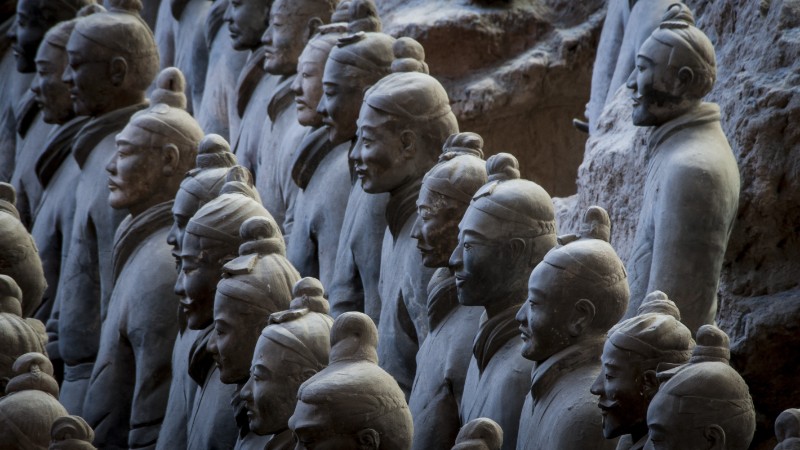 It’s not everyone who gets sent into the afterlife accompanied by a terracotta army of over 8000 warriors (plus terracotta horses and chariots). But then, the first Qin Emperor, Qin Shi Huang, was the man famous for first conquering and unifying China – so it’s pretty fitting. Although these terracotta warriors were made over 2000 years ago, the faces almost seem alive. It’s not just a historical record, but a record of craft and skill.
It’s not everyone who gets sent into the afterlife accompanied by a terracotta army of over 8000 warriors (plus terracotta horses and chariots). But then, the first Qin Emperor, Qin Shi Huang, was the man famous for first conquering and unifying China – so it’s pretty fitting. Although these terracotta warriors were made over 2000 years ago, the faces almost seem alive. It’s not just a historical record, but a record of craft and skill.
7. Longmen Grottoes
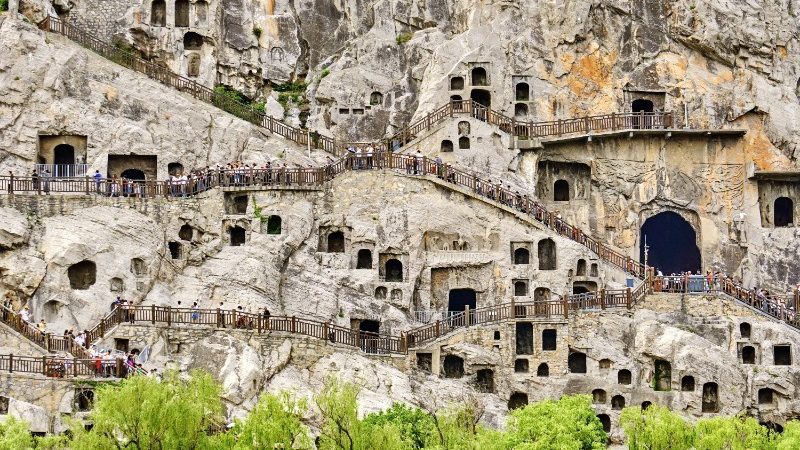 Like a treasure chest carved into cliffs, the Longmen Grottoes protect one of the most remarkable collections of Buddhist art in the world, carved over hundreds of years in the Northern Wei and Tang dynasties. These grottoes, which extend for a kilometre along the river cliffs on both sides of the Yi River, hide thousands upon thousands of intricately carved stone statues, which used to be painted. It’s a bit of a hike to see them all, but so worth it.
Like a treasure chest carved into cliffs, the Longmen Grottoes protect one of the most remarkable collections of Buddhist art in the world, carved over hundreds of years in the Northern Wei and Tang dynasties. These grottoes, which extend for a kilometre along the river cliffs on both sides of the Yi River, hide thousands upon thousands of intricately carved stone statues, which used to be painted. It’s a bit of a hike to see them all, but so worth it.
8. China Danxia
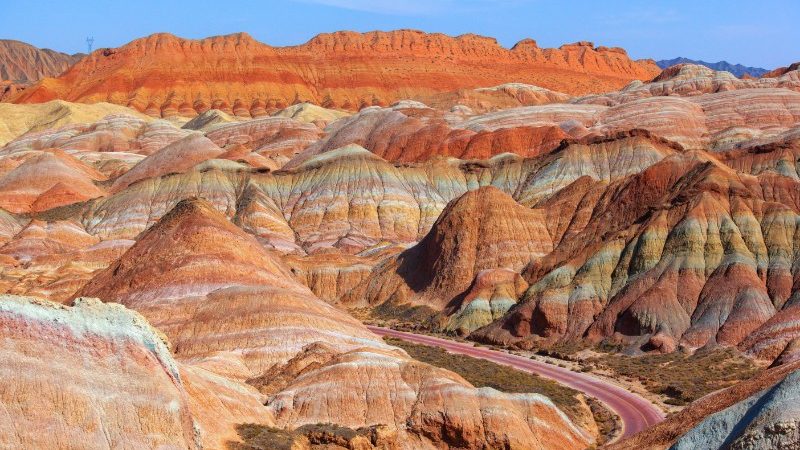 Although China is rich in man-made beauty, it’s even richer in natural beauty. Outside of the polluted main cities is a landscape that Hollywood dreams are made of – particularly China Danxia, a geological occurrence that results in dramatic red sandstone landforms in all sorts of strange shapes (some of them a bit rude). These formations form mountains and pillars, surrounded by suitably dramatic landscapes of plunging waterfalls, deep ravines and verdant forests. It looks like the land that time forgot, and the protected areas extends across 1200 kilometres.
Although China is rich in man-made beauty, it’s even richer in natural beauty. Outside of the polluted main cities is a landscape that Hollywood dreams are made of – particularly China Danxia, a geological occurrence that results in dramatic red sandstone landforms in all sorts of strange shapes (some of them a bit rude). These formations form mountains and pillars, surrounded by suitably dramatic landscapes of plunging waterfalls, deep ravines and verdant forests. It looks like the land that time forgot, and the protected areas extends across 1200 kilometres.












